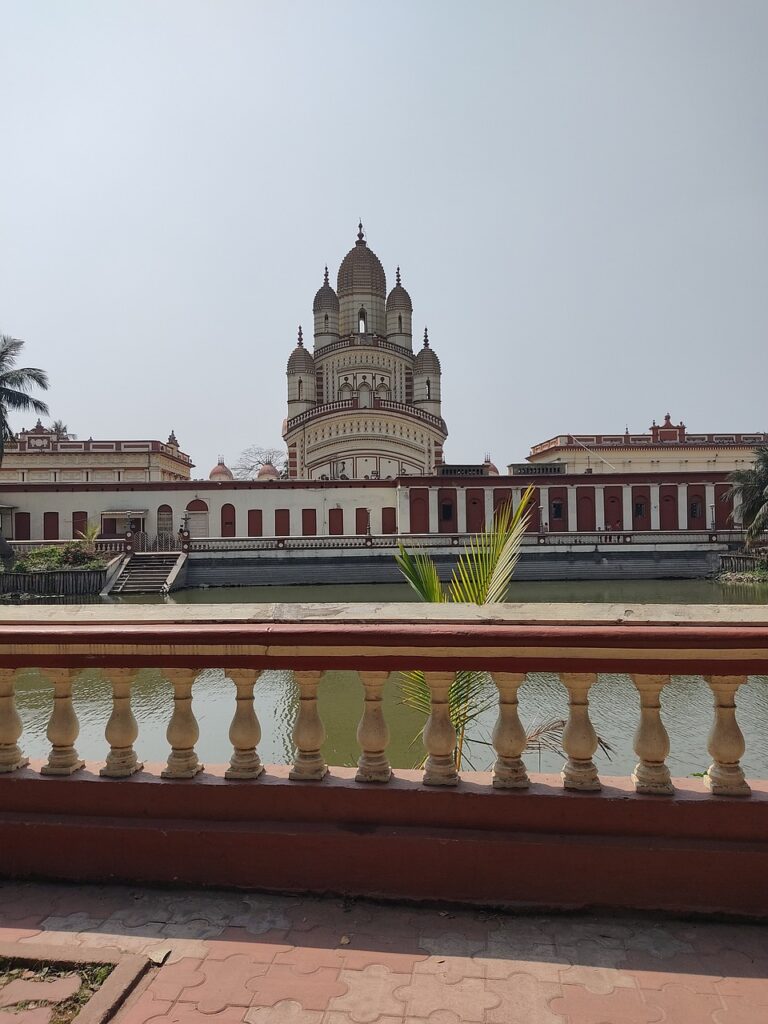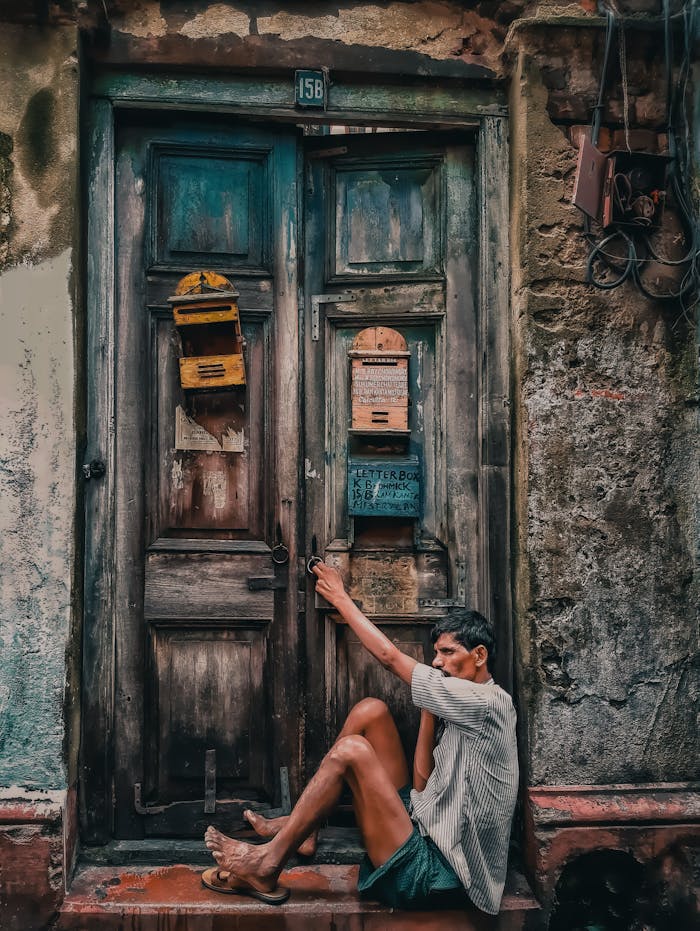Sreetama
This is front side content.
Rony
This is back side content.
Dakshineswar Kali Temple or Dakshineswar Kalibari is a Hindu navaratna temple in Dakshineswar, Kolkata, West Bengal, India. Situated on the eastern bank of the Hooghly River, the presiding deity of the temple is Bhavatarini (Kali), a form of Mahadevi or Parashakti Adya Kali, otherwise known as Adishakti Kalika. The temple was built in 1855 by Rani Rashmoni, a Zamindar, philanthropist and a devotee of Kali Maa. The temple is known for its association with Ramakrishna and Ma Sarada Devi, mystics of 19th century Bengal.
The main temple was inspired by Navaratna style Radhakanta temple in Tollygunge, built by Babu Ramnath Mondal of Bawali Raj family .The temple compound, apart from the nine-spired main temple, contains a large courtyard surrounding the temple, with rooms along the boundary walls. There are twelve shrines dedicated to Shiva, Kali’s consort, along the riverfront, a temple to Radha–Krishna, a bathing ghat on the river, a shrine dedicated to Rani Rashmoni. ‘Nahabat’, the chamber in the northwestern corner just beyond the last of the Shiva temples, is where Ramakrishna and Maa Sarada spent a considerable part of their lives.

North Kolkata is a cultural treasure trove, known for its elaborate historic houses that narrate stories of the city’s illustrious history. These buildings from the colonial era, with their elaborate wrought-iron balconies, lofty ceilings, and expansive courtyards, serve as reminders of a more opulent time in history. Numerous of these houses, with their colourful murals and vintage furnishings, showcase the unique fusion of architectural designs influenced by British, Portuguese, and Bengali architecture. You can almost hear the echoes of the passionate discussions and festivities that used to fill these buildings as you go along the tiny aisles. Encapsulating the city’s architectural past and serving as a reminder of the rich community life that flourished in North Kolkata, the preservation of these ancient residences is imperative.

